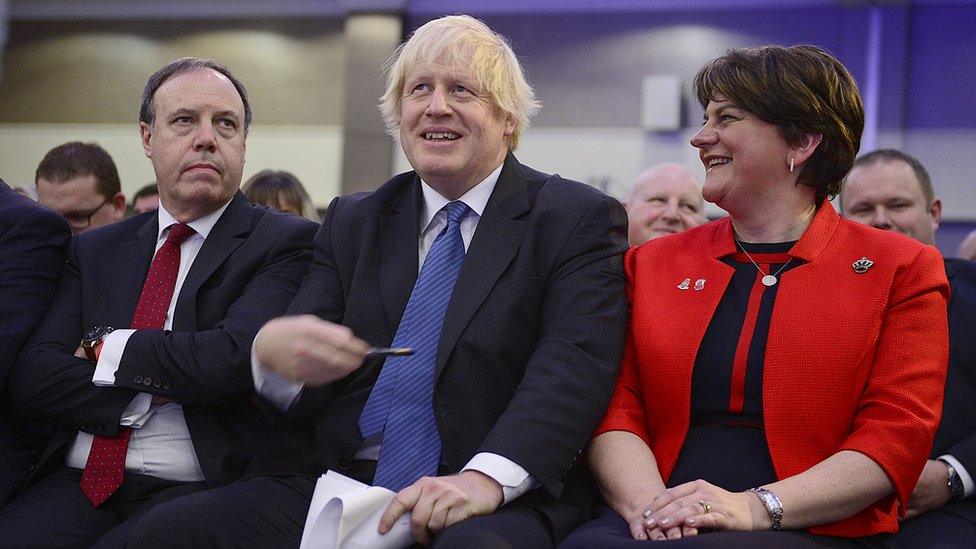Leo Varadkar: A hard Brexit could 'undermine the union'
- Published
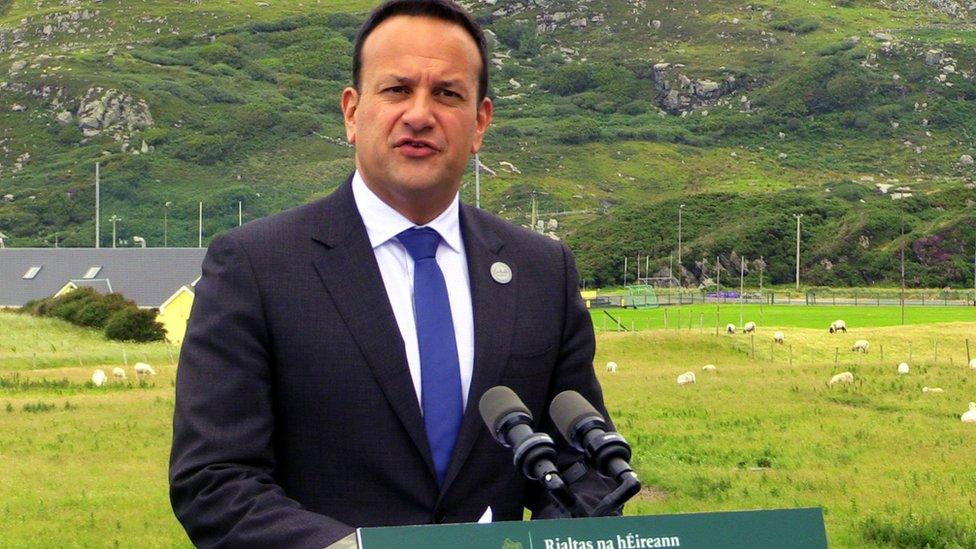
Mr Varadkar said people happy with the "status quo" could look towards a united Ireland after Brexit
A no-deal Brexit could lead to a united Ireland and the break-up of the United Kingdom, Taoiseach (Irish prime minister) Leo Varadkar has said.
Boris Johnson told the Commons on Thursday that the route to a Brexit deal would be to persuade the EU to "abolish" the Irish border backstop.
The EU maintains the withdrawal agreement was the best one possible and removing the backstop was unacceptable.
Mr Varadkar said the possibility of a no-deal Brexit was "a British threat".
He added that he hoped that was not the option the new prime minister was choosing.
On Thursday, the EU's chief Brexit negotiator, Michel Barnier, sent a note to European leaders, repeating the EU's position that getting rid of the backstop was "of course unacceptable", and labelling Mr Johnson's speech "rather combative".
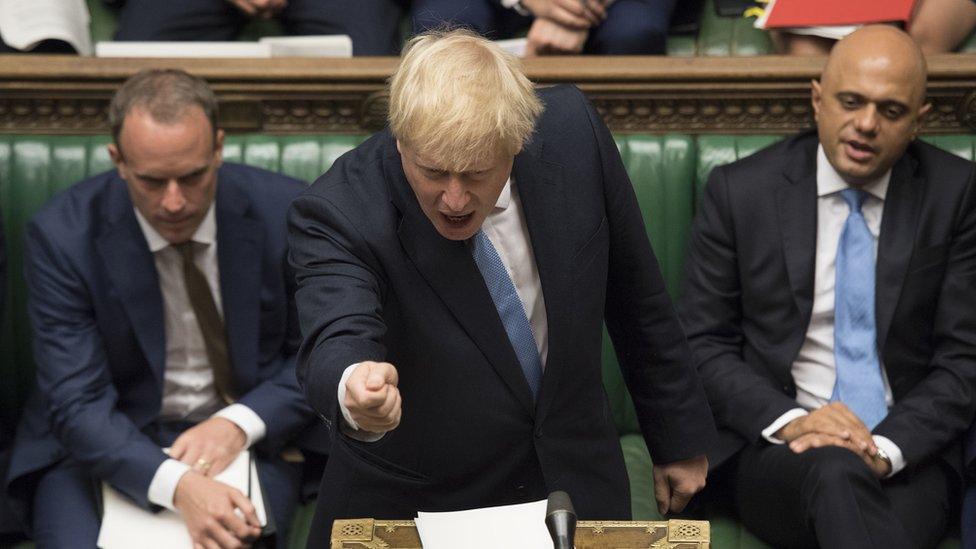
Boris Johnson has been accused of putting the UK on a "collision course" with Europe

What is the backstop?
The backstop is a key piece of the deal negotiated by his predecessor's government, dictating what will happen to the border between Northern Ireland and the Republic of Ireland.
It is a last resort that guarantees a frictionless border if no better solution is devised in time - by maintaining close ties between the UK and the EU until such a solution is found.

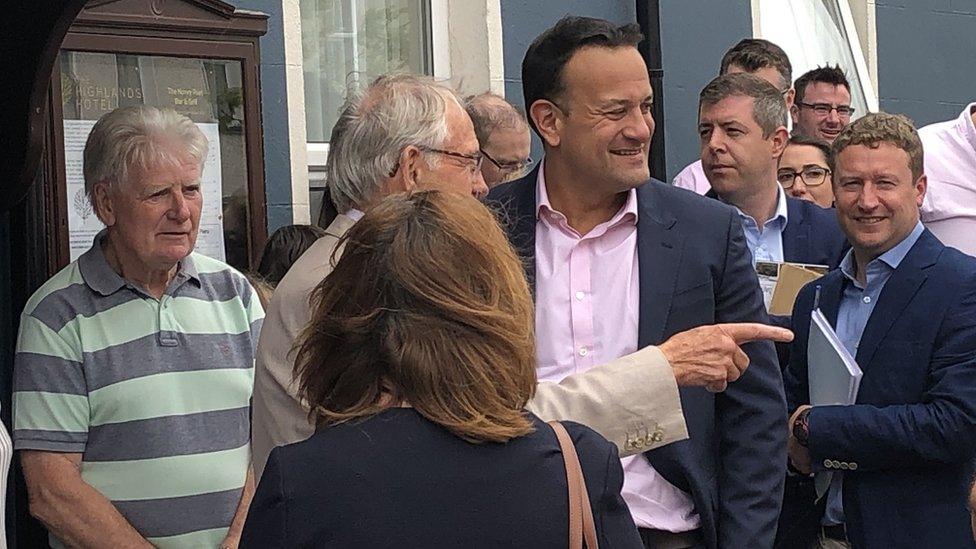
Leo Varadkar was speaking at the MacGill Summer School in County Donegal
Speaking at a summer school in County Donegal on Friday, the taoiseach said in the event of a no-deal Brexit, more people in Northern Ireland would come to question the union.
"People who you might describe as moderate nationalists or moderate Catholics, who were more or less happy with the status quo, will look more towards a united Ireland," he said.
"I think increasingly you'll see liberal protestants, liberal unionists starting to ask the question as to where they feel more at home.
"Is it in a nationalist Britain, that's you know talking about potentially bringing back the death penalty and things like that, or is it part of a common European homeland and part of Ireland?
"One of the things, ironically that could really undermine the union, the United Kingdom union is a hard Brexit."
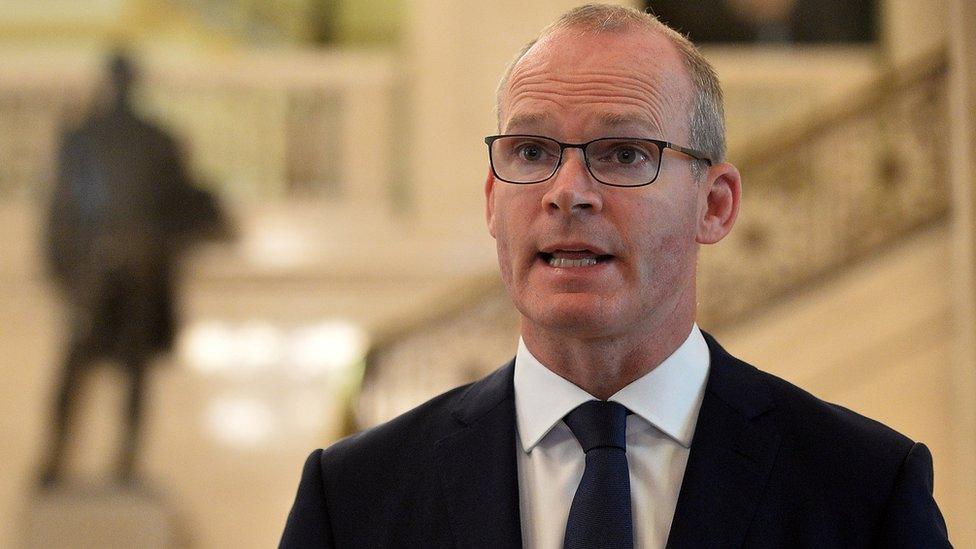
Simon Coveney said Mr Johnson's approach was not the basis for an agreement
Earlier, the Irish foreign minster accused Boris Johnson of deliberately deciding to set the UK on "a collision course" with Ireland and the European Union.
Mr Coveney, who is also Ireland's deputy prime minister, said the new prime minister's comments on Thursday made it "a very bad day" from the perspective of Brexit negotiations.
Boris Johnson responded, stating that "under no circumstances will there be any kind of checks at the frontier of Northern Ireland".
"The UK will be coming out of the EU on 31 October," he added.
"Of course there will be all sorts of discussions to be had with our Irish friends about how to ensure that we will have continuous frictionless trade."
'Basis for agreement'
Simon Coveney also met the new Northern Ireland Secretary Julian Smith on Friday.
He described the meeting as useful, adding he believed that they would work well together.
Allow X content?
This article contains content provided by X. We ask for your permission before anything is loaded, as they may be using cookies and other technologies. You may want to read X’s cookie policy, external and privacy policy, external before accepting. To view this content choose ‘accept and continue’.
Northern Ireland's power-sharing executive collapsed in January 2017 with the main parties, Sinn Féin and the DUP not being able to find agreement on restoring it to date.
All parties want to make the devolved government work in Northern Ireland, Mr Coveney said, adding that he hoped a deal on restoring the devolved government will be concluded in the coming weeks:
"I believe we are very close to having the basis for agreement.
"I do not believe that there is any policy reason why the talks should continue for many more weeks."
- Published26 July 2019
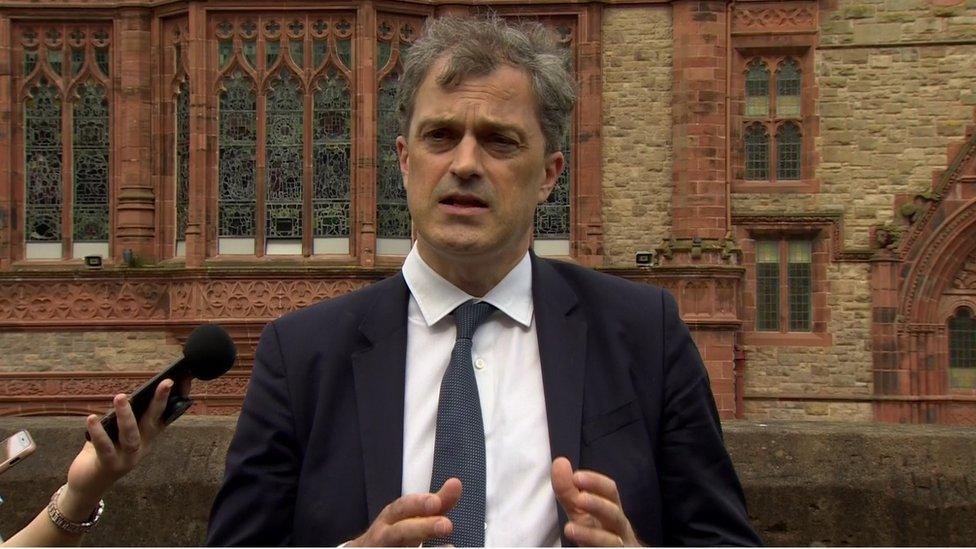
- Published25 July 2019
